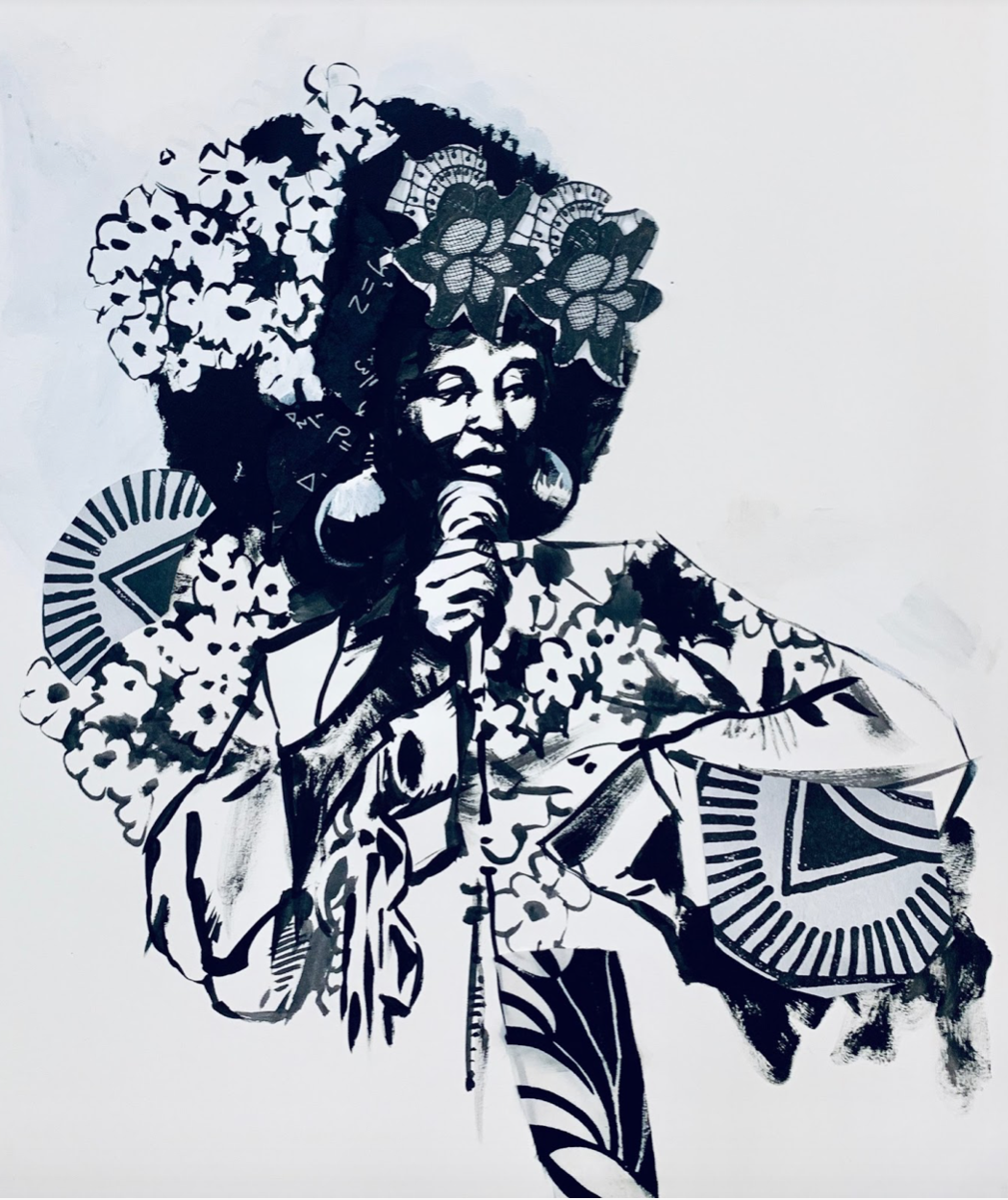I was introduced to Betty Wright in 2012 at an Art Basel event in Miami. I became giddy in her presence almost immediately. I talked with Ms. Wright about how huge a fan my mom was, and how I, too, was a fan by default. Yet, I did not have the courage to share why she and her music was so meaningful to me.
Wright’s music meant something to me because it meant something very specific to my mama. A young me knew this to some degree, but an older me knows why all too well. Reflecting on Wright’s eponymous work, Betty Wright Live, made it ever clear.
The iconic, sienna-colored album cover—of Wright donning her once-signature afro, ginormous earrings, pink dress, a hand on the hip and the other gripping a mic—was a household staple. On most days, it was propped up on a janky shelf like the prized piece of Black art it is. On other days, it was a tray for sorting: twigs off to one side, turtle-shaped seeds to the other and buds of weed and bamboo papers gathered at the center.
Six songs, cloaked in Wright’s throaty vocals, owned the apartment, but there was always space for the main three my mama belted emphatically—and the reefer aroma. Those moments showed a mini-me that my mother had reserved the softer parts of herself for me, for herself and for Wright’s music. In public, among her many acquaintances, but particularly in the relationship with her man, my mother was aggressive. She was a central, domineering figure in her friend group. She stood up for them, gave shoot-from-the-hip advice and influenced them to be more assertive and to advocate for themselves. Her own romance, though, required truculence that was mostly expressed through self defense, blood stains and stitches.
I was haunted, more often than I’d like to admit, by coarse words and thick bodies thrown up against thin walls. Relief came in the form of welfare checks from the po-po. A slammed door and a sobbing mother meant the violence had ceased and the perpetrator fled. Recovery and repair was left to mommy and me: erect items that were knocked over; sweep up shards of glass; restore curtains and wall hangings to their normal value; bring mommy a cold rag to stop the bleeding. The aftermath welcomed some unorthodox love that included cereal for lunch and pancakes for dinner. I was punch drunk on bonus hugs and extended talks that took place in my mother’s lap—and then there was Betty Wright Live.
As she chanted Wright’s lyrics, I wondered if my mother reminisced over teenage love with my dad—as “Tonight Is the Night” crackled beneath the record player’s needle—and if my father’s shortcomings were any worse than her husband’s fists and transgressions. I never did tell her about Ms. Beverly, “The Clean Up Woman,” top-heavy with a tucked backside, who fed me pork chops, whipped potatoes and creamed corn from the can.
I thought she knew.
The one song my mother seemed most in conversation with was “You Can’t See for Lookin .” The ballad tells the pain of a good woman desperately clinging to a wayward man who doesn’t recognize her love and worth. It repeats over and over, in chorus, that said man can’t, can’t, can’t see, for looking to see—the bad in his woman. The irony of my mama’s singing this tune in unison with Wright was that she could not see the bad in this cancer of a man because she wanted so badly to see the good.
And to fix him.
For me, the most provocative thing about that specific song isn’t my young self witnessing the pain of my young, battered and misguided mother back then, but rather the rememory—the process of returning to memories again and again, in such a way that they affect a person’s processing of their present—it triggered in the adult woman I’d come to be.
For years, I loathed that curious flaw in my mother, but as I matured, I grew to forgive her weaknesses and understand the complexity of her vulnerabilities. While it is easy to pass judgement on her for wanting, almost demanding, to be loved and respected albeit through emotional and physical harm, it is really through her pain I gained such tender moments with a mother I’d eventually lose to a chronic illness just a few years later.
Wright called it “No Pain, No Gain.”
Buried beneath all the dysfunction, there lied the divine. Those calamities and late nights with Betty Wright, I nursed the softest parts of mama, and she did, too.
_
Feature image credit: “Ms. Betty, Live” by Charly Palmer.
